Table of Contents
- Introduction
- Understanding Mental Health
- Promoting a Positive Environment
- Encouraging Healthy Habits
- Building Supportive Relationships
- Practicing Self-Care
- Seeking Professional Help
Introduction
Welcome to "Empowering Individuals: A Guide to Promoting Mental Health and Wellbeing". In this guide, we will explore strategies and techniques that can assist in supporting individuals on their journey to improved mental health.
Understanding Mental Health
This section provides a comprehensive understanding of mental health, its importance, and common misconceptions.
Mental health refers to a person's emotional, psychological, and social well-being. It affects how we think, feel, and act, and also influences how we handle stress, relate to others, and make choices. It is essential to prioritize and support our mental health, just as we do with our physical health.
Supporting an Individual to Promote their Own Mental Health and Wellbeing
1. Encourage open communication: Foster a safe and non-judgmental environment for individuals to express their thoughts and emotions. Encourage them to talk about their feelings, concerns, or any challenges they might be facing.
2. Active listening: Give your undivided attention when someone is sharing their feelings or experiences. Show empathy, validate their emotions, and offer reassurance that they are not alone. Active listening promotes understanding and creates a supportive space.
3. Educate yourself: Gain knowledge about different mental health conditions, common symptoms, and treatment options. This understanding will enable you to provide better support and address any misconceptions surrounding mental health.
4. Be non-judgmental: Avoid passing judgment or making assumptions about an individual's mental health struggles. Understand that everyone's experience is unique, and offering a non-judgmental attitude will help build trust and encourage them to seek help if needed.
5. Encourage self-care: Emphasize the importance of self-care activities, such as exercise, healthy eating, adequate sleep, and relaxation techniques. Encourage individuals to engage in activities they enjoy and that promote their overall well-being.
6. Offer assistance: If someone is experiencing difficulties in their daily life due to their mental health, offer your support. This could include helping with daily tasks, accompanying them to appointments, or assisting in finding professional help if necessary.
7. Promote a positive environment: Encourage positivity and promote mental health awareness within your community. Encourage social connections, provide resources for support, and organize activities that foster a sense of belonging and well-being.
Remember, supporting someone's mental health involves patience, empathy, and understanding. By offering your support, you can play a vital role in helping individuals promote their own mental health and overall well-being.

Promoting a Positive Environment
In this section, we delve into the significance of creating a positive and supportive environment to foster mental wellbeing.
To promote an individual's mental health and well-being, it is important to create a positive environment. Here are some tips on how to support them:
1. Encourage open communication
Develop a safe and supportive atmosphere where individuals feel comfortable expressing their thoughts and emotions without judgment.
2. Foster positive relationships
Encourage social connections and healthy interactions with family, friends, and peers. Support them in building and maintaining strong relationships.
3. Promote self-care practices
Highlight the importance of self-care activities like exercise, healthy eating, adequate sleep, and relaxation techniques such as meditation or mindfulness.
4. Provide access to resources
Offer information and access to mental health resources such as therapy, counseling, support groups, or helplines.
5. Encourage a balanced lifestyle
Emphasize the significance of a well-rounded life, including work-life balance, hobbies, personal interests, and pursuing activities that bring joy and fulfillment.
6. Educate about mental health
Increase awareness and understanding of mental health by providing information, dispelling myths, and promoting acceptance and empathy towards mental health conditions.
7. Be a supportive listener
Practice active listening, validate their feelings, and offer non-judgmental support. Create a safe space where individuals feel heard and understood.
8. Encourage seeking professional help
When necessary, advocate for seeking professional help and assure individuals that seeking assistance is a positive step towards improved mental health.
Remember, promoting mental health is a continuous effort that requires empathy, understanding, and ongoing support.
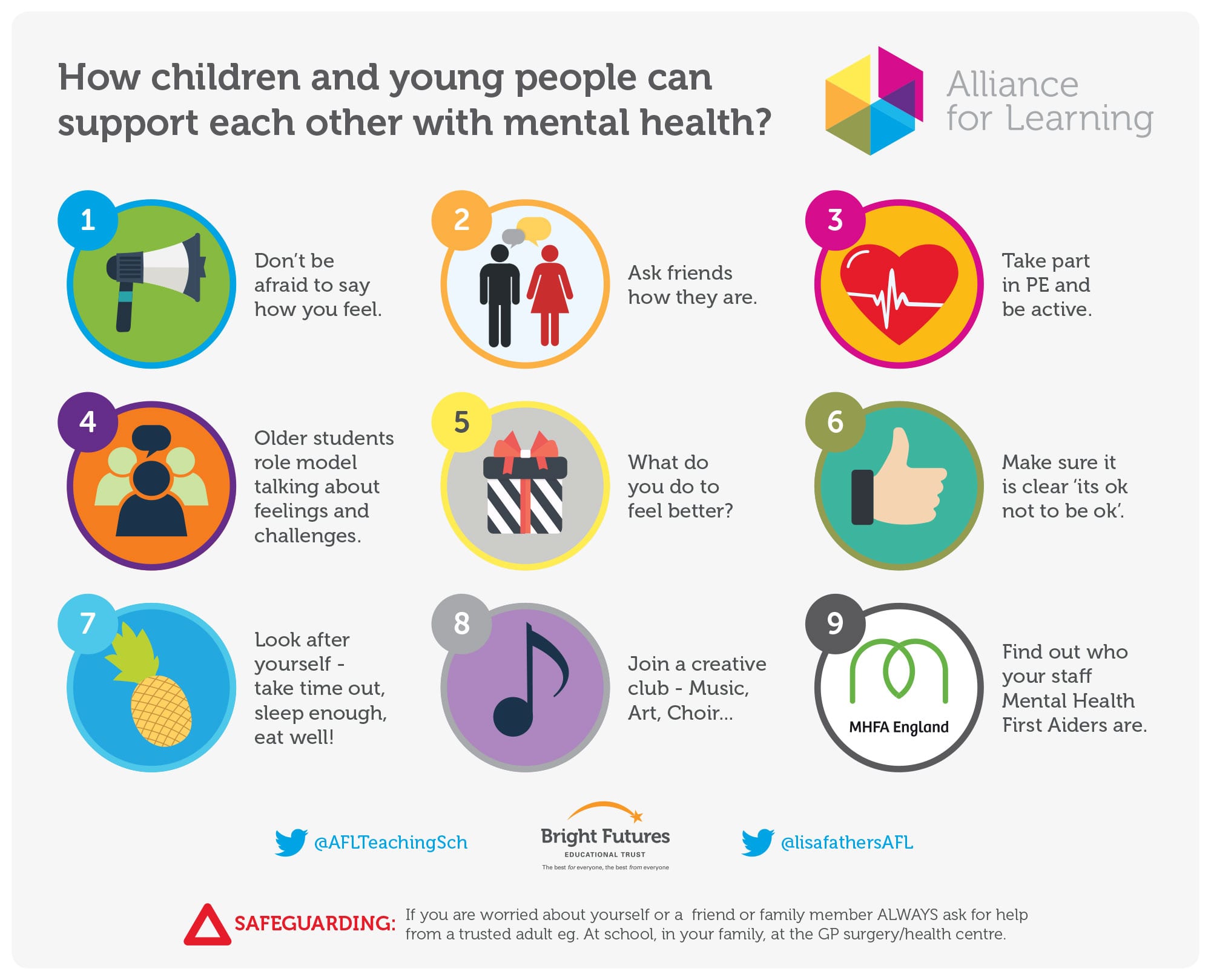
Encouraging Healthy Habits
Learn about the impact of healthy habits, such as exercise, proper nutrition, and adequate sleep, on mental health in this section.
Promoting mental health and overall well-being is crucial for individuals to lead a balanced and fulfilling life. Here are some ways you can support someone in promoting their own mental health:
1. Encourage Regular Exercise
Physical activity has a positive impact on mental well-being. Encourage the individual to engage in regular exercise, such as walking, jogging, or participating in their favorite sports. Physical activity helps reduce stress, boost mood, and improve overall mental health.
2. Foster a Supportive Environment
Create a safe and non-judgmental environment where the individual feels comfortable expressing their thoughts and feelings. Be a good listener and provide emotional support. Offer reassurance and empathy when needed.
3. Promote Healthy Eating Habits
A nutritious diet plays a significant role in mental health. Encourage the individual to consume a balanced diet with plenty of fruits, vegetables, whole grains, and lean proteins. Help them understand the importance of staying hydrated and avoiding excessive intake of processed foods or sugary drinks.
4. Encourage Relaxation Techniques
Teach and encourage the use of relaxation techniques, such as deep breathing exercises, meditation, or yoga. These practices can help reduce anxiety, promote calmness, and improve mental clarity.
5. Promote Healthy Sleep Patterns
Adequate sleep is vital for mental health. Encourage the individual to establish a consistent sleep routine, aiming for 7-8 hours of quality sleep each night. Offer tips on creating a relaxing sleep environment and avoiding electronic devices before bedtime.
6. Encourage Social Connections
Social interactions have a positive impact on mental well-being. Encourage the individual to connect with friends, family, or participate in group activities they enjoy. Foster a sense of community and belonging.
7. Educate About Mental Health
Provide information about mental health conditions and common coping strategies. Help the individual understand that seeking professional help when needed is not a sign of weakness, but rather a step towards taking care of their mental well-being.
Remember, promoting healthy habits requires patience, understanding, and support. Encouraging someone to take small steps towards improving their mental health can have a significant and lasting impact on their overall well-being.
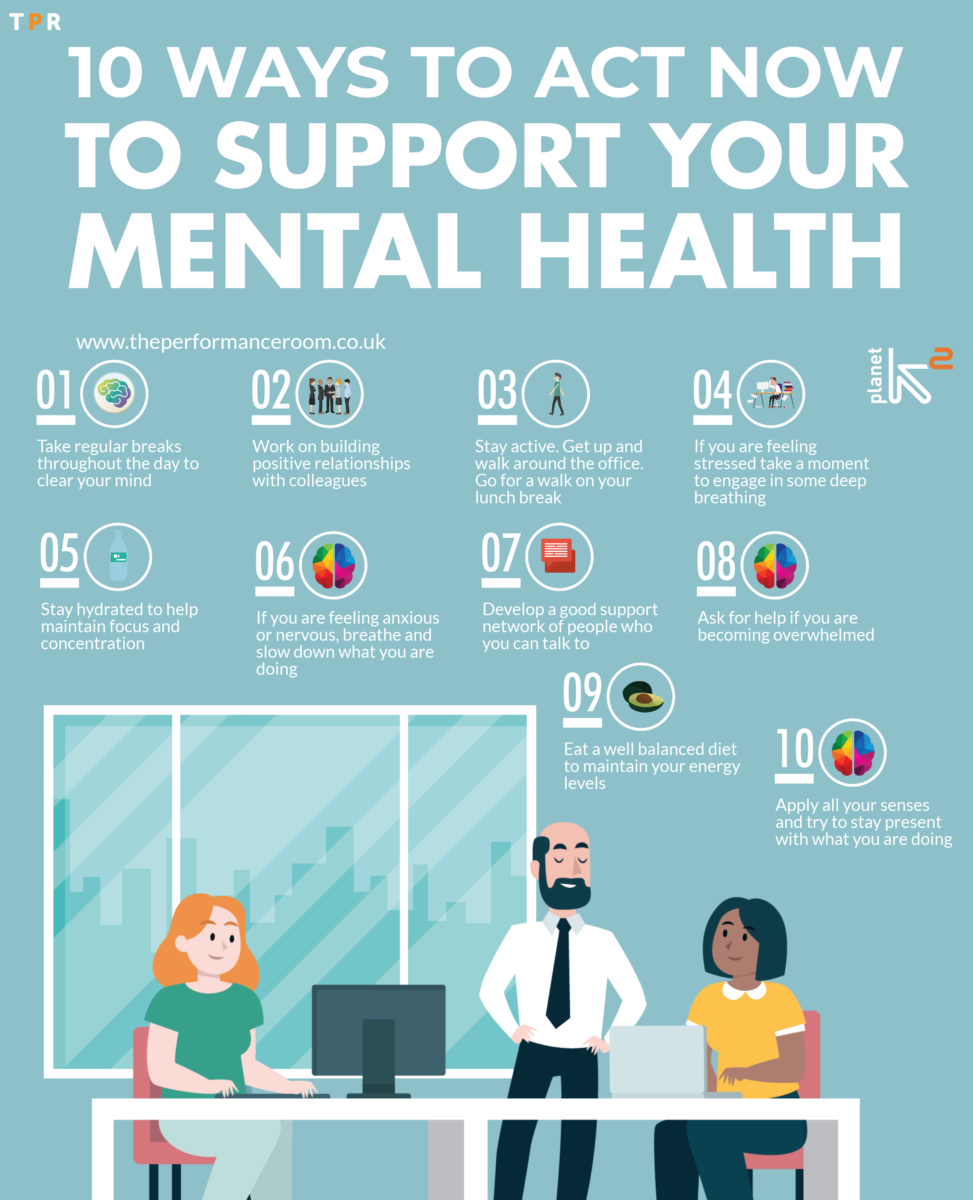
Building Supportive Relationships
Discover the importance of cultivating supportive relationships and how they can contribute to an individual's mental wellbeing.
Promoting Mental Health and Wellbeing
Supporting individuals to promote their own mental health and wellbeing is crucial in creating a nurturing and caring environment. Here are some key steps to help you effectively support an individual:
1. Listen and Communicate
Actively listen to the person, providing a safe space for them to express their thoughts and feelings. Engage in open and non-judgmental communication to build trust and encourage honest dialogue.
2. Encourage Self-Awareness
Help the individual develop self-awareness by promoting reflection on their emotions, triggers, and stressors. Encourage them to recognize and understand their own mental health needs and boundaries.
3. Provide Information and Resources
Equip the individual with accurate information about mental health and wellbeing. Share resources such as helpline numbers, support groups, or educational materials that can aid them in seeking further assistance or learning about coping strategies.
4. Foster a Supportive Network
Help the person build a supportive network of friends, family, or support groups who can provide encouragement, empathy, and understanding. Assisting them in finding community resources can be beneficial in maintaining positive mental health.
5. Encourage Healthy Habits
Promote the importance of self-care activities like exercise, good nutrition, regular sleep patterns, and engaging in hobbies or interests. These habits can contribute significantly to mental wellbeing.
6. Support Professional Help
If the person requires professional help, encourage them to seek assistance from mental health professionals such as therapists or counselors. Assure them that seeking help is a sign of strength and not a sign of weakness.
7. Monitor and Check-In
Regularly check-in with the individual to monitor their mental health and wellbeing. Be observant of any signs of distress or changes in behavior, and offer support or help when necessary.
Remember, building supportive relationships involves actively promoting the individual's autonomy, while providing guidance and assistance when needed. Your support can make a significant impact on someone's mental health and overall wellbeing.
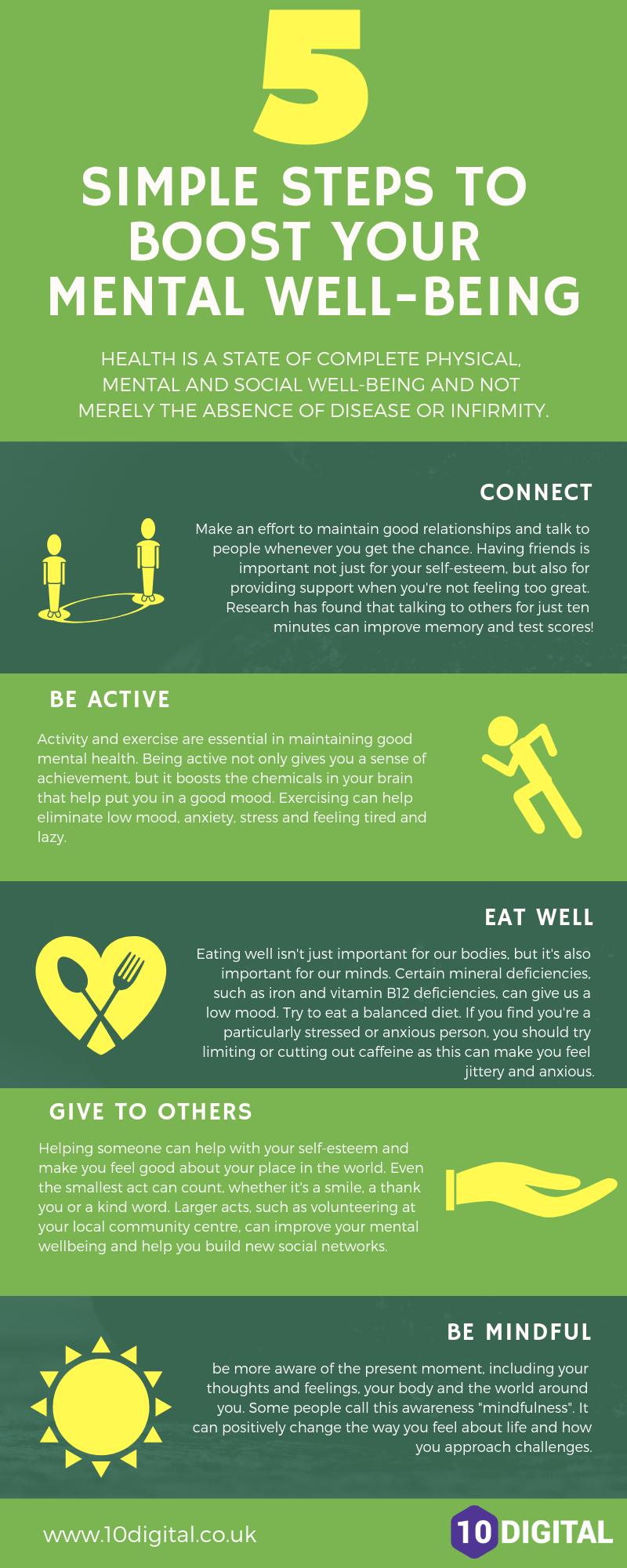
Practicing Self-Care
This section emphasizes the significance of self-care practices in maintaining and improving mental health.
Practicing self-care is crucial for maintaining good mental health and wellbeing. It involves taking deliberate actions to support and prioritize your own emotional, physical, and psychological needs. In order to support an individual in promoting their own mental health and wellbeing, here are some key steps:
- Recognize the importance: Encourage individuals to understand the significance of self-care and its impact on overall well-being. Discuss the benefits of self-care, such as reduced stress levels, improved mood, increased productivity, and better relationships.
- Identify individual needs: Help individuals identify their specific needs and what brings them joy, peace, and relaxation. This could include activities like exercising, reading, practicing mindfulness, spending time in nature, or engaging in hobbies.
- Create a self-care routine: Assist individuals in developing a self-care routine that suits their lifestyle and preferences. Encourage them to allocate dedicated time for self-care activities and stick to it as much as possible.
- Promote healthy habits: Emphasize the importance of maintaining a healthy lifestyle. Encourage individuals to eat nutritious food, get enough sleep, stay hydrated, and engage in regular physical activity. These habits significantly contribute to overall well-being.
- Set boundaries: Teach individuals the significance of setting healthy boundaries in their personal and professional relationships. Help them establish limits to prevent excessive stress, overcommitment, and burnout.
- Practice self-compassion: Encourage individuals to be kind to themselves and practice self-compassion. Help them challenge negative self-talk and develop a positive mindset. Remind them that it's okay to make mistakes and prioritize self-care without feeling guilty.
- Seek support: Remind individuals that seeking support is a sign of strength, not weakness. Encourage them to reach out to friends, family, or mental health professionals when needed. They don't have to face challenges alone.
Remember, self-care is an ongoing process that requires commitment and self-awareness. By practicing self-care, individuals can enhance their mental health and overall well-being, leading to a happier and more fulfilling life.
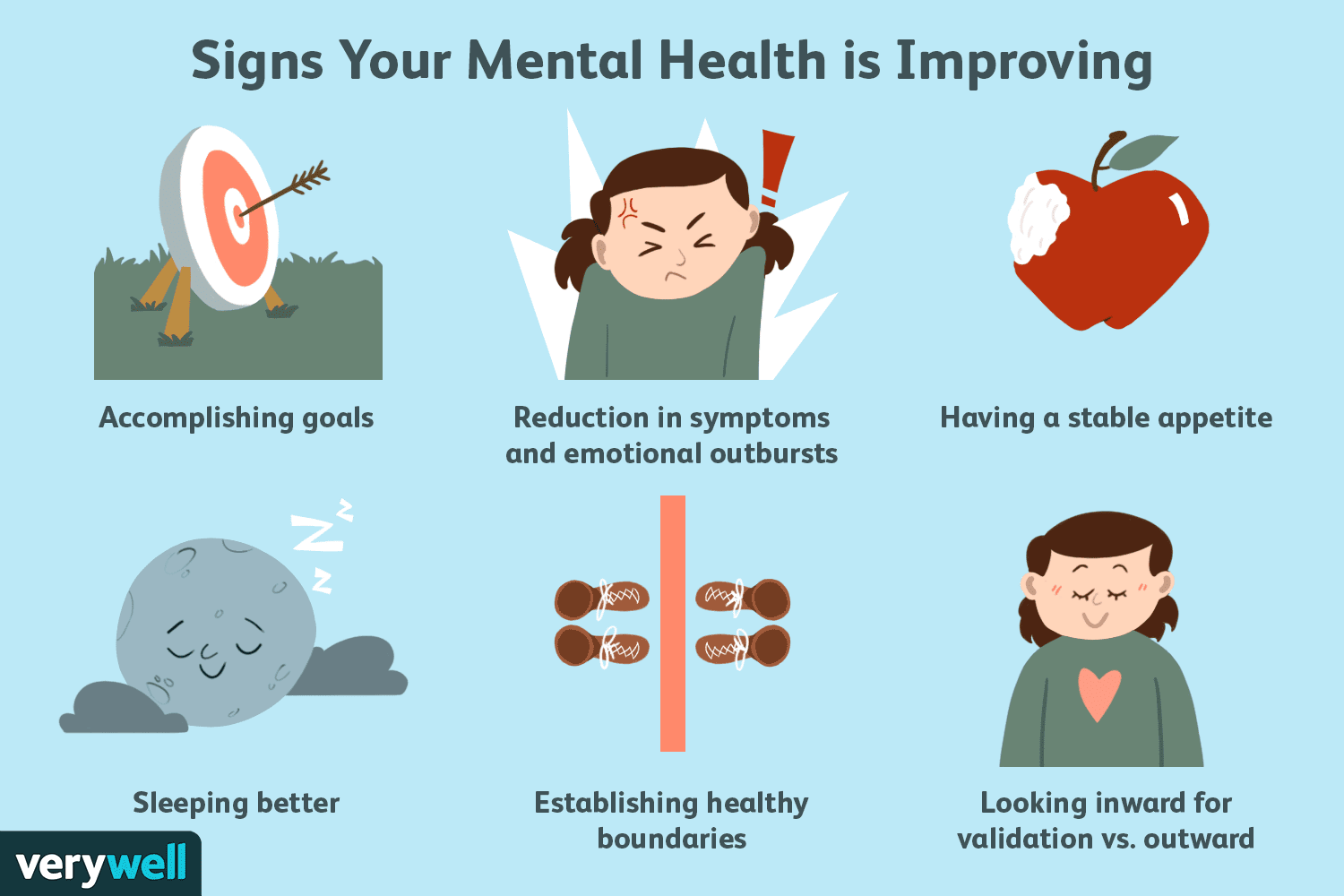
Seeking Professional Help
Learn about the various resources available and how to encourage individuals to seek professional help when needed.
When it comes to promoting mental health and wellbeing, seeking professional help can play a crucial role in providing individuals with the necessary guidance and support. Here are some steps you can take to help someone in this regard:
- Encourage open conversations: Start by creating a safe and non-judgmental space for the individual to express their feelings. Encourage them to talk about their concerns, worries, or any distressing thoughts they may have. Active listening and empathy can go a long way in making them feel understood.
- Normalize seeking help: Remind the individual that seeking professional help is a common and positive step towards better mental health. Share stories or experiences of others who have benefited from therapy, counseling, or any other mental health services. Let them know that they are not alone in this journey.
- Research reputable professionals: Assist the person in finding reputable mental health professionals such as therapists, psychologists, or psychiatrists. Research their qualifications, experience, and areas of expertise. It's important to find someone who aligns with the individual's specific needs and preferences.
- Offer support in booking appointments: Help the person with the practical aspect of seeking professional help, such as finding contact information, making phone calls, or scheduling appointments. This support can alleviate some of the initial stress or anxiety associated with taking this step.
- Provide reassurance: Remind the individual that seeking help is a courageous and positive decision. Reassure them that they have made the right choice and that their mental health and wellbeing are of utmost importance.
- Follow-up: Continue to show your support even after the individual has started professional treatment. Check in on their progress, encourage them to keep going, and offer any additional assistance they may need.
Remember, seeking professional help is a crucial part of taking care of one's mental health. By offering your support and understanding, you can help someone in their journey towards better mental wellbeing.
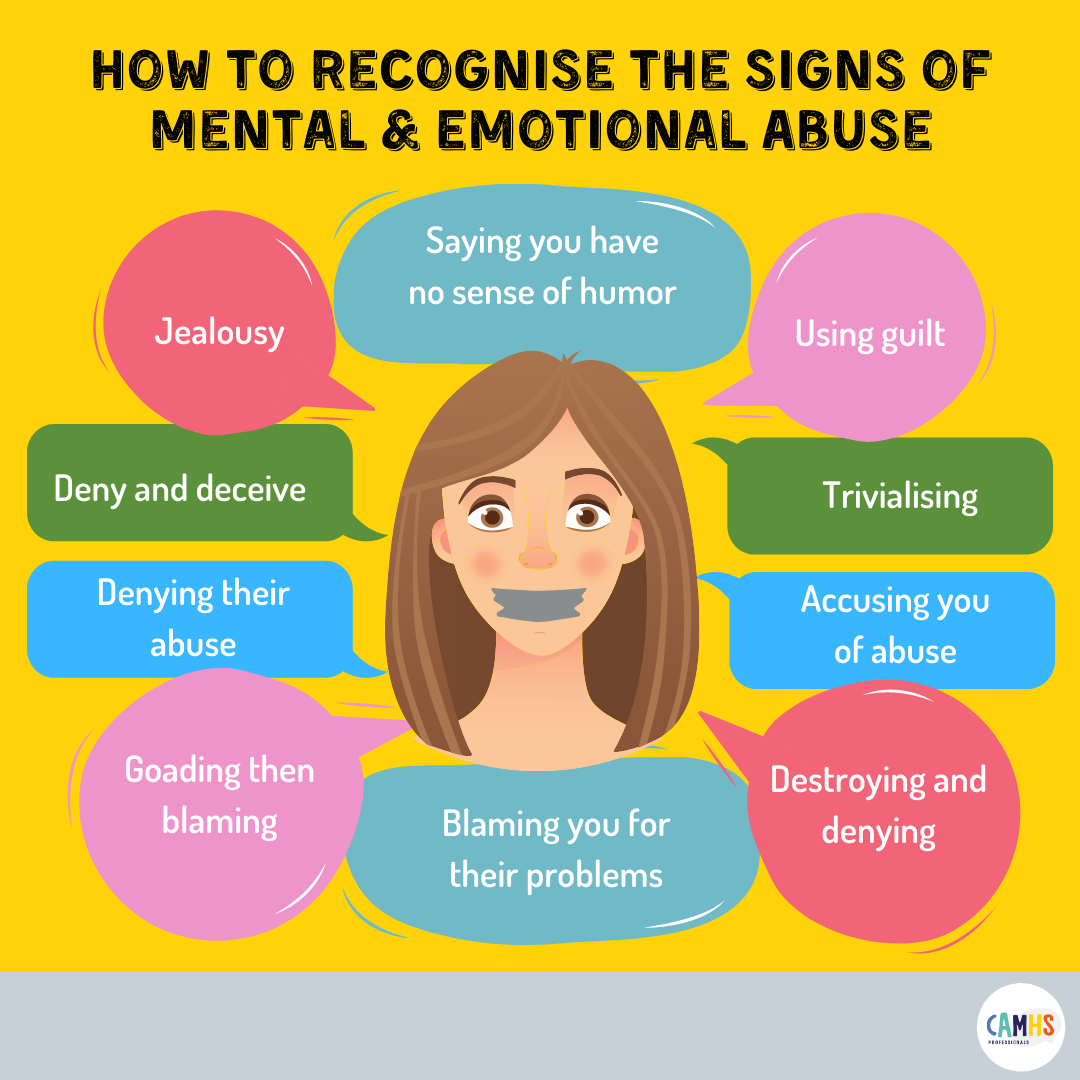
Key Takeaways
- Mental health is crucial for overall wellbeing.
- Creating a positive environment supports mental wellbeing.
- Healthy habits positively impact mental health.
- Supportive relationships are essential for mental wellbeing.
- Practicing self-care enhances mental health.
- Encouraging professional help is vital when needed.
Frequently Asked Questions (FAQ)
Q: How can I promote mental health in my everyday life?
A: You can promote mental health by engaging in self-care activities, maintaining social connections, and seeking professional help if necessary.
Q: How can I support someone experiencing mental health issues?
A: Offering a listening ear, providing empathy, and encouraging them to seek professional support are helpful ways to support someone experiencing mental health issues.
Q: What are some signs that indicate someone might be struggling with their mental health?
A: Common signs include changes in behavior, extreme mood swings, withdrawal from social activities, and expressing feelings of hopelessness.
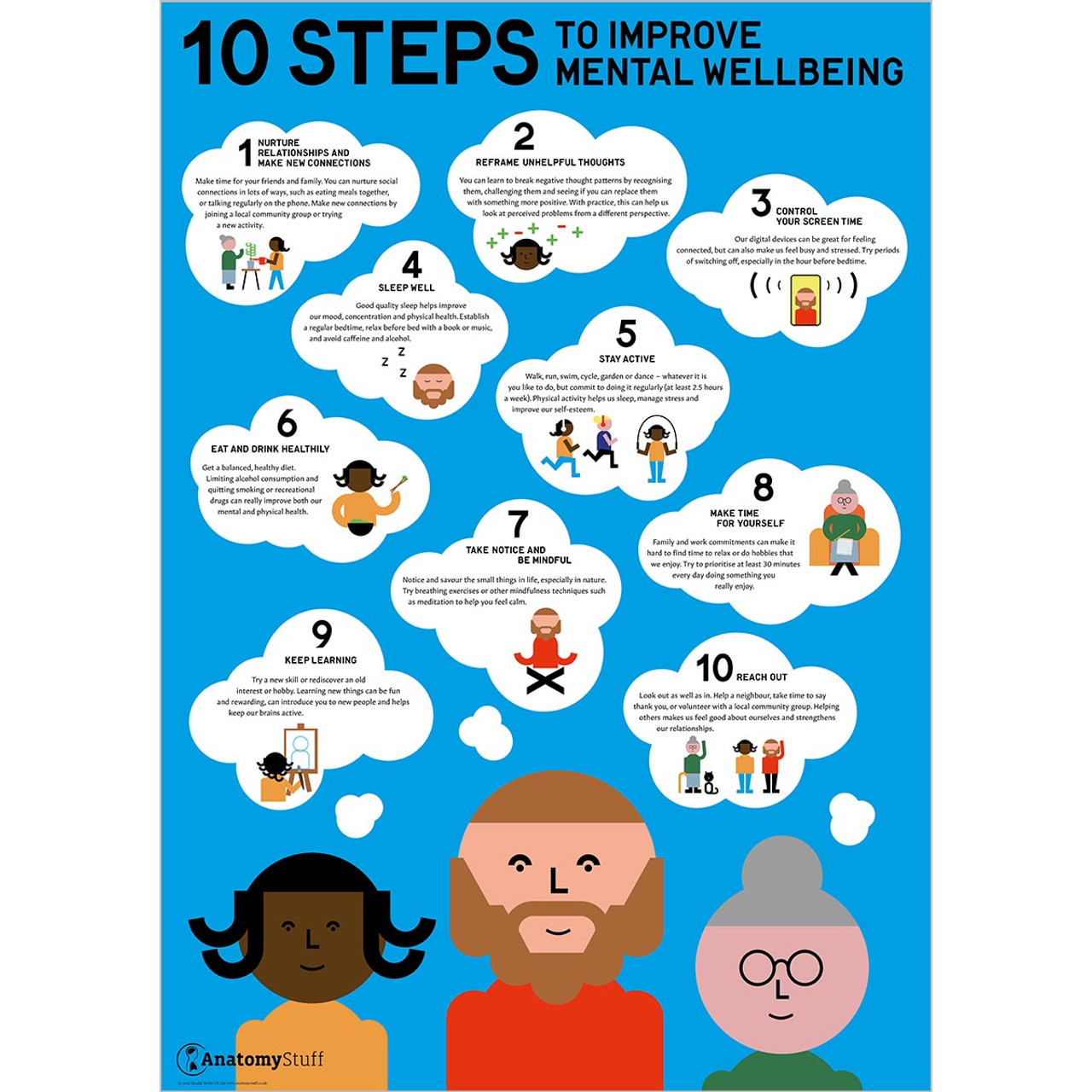


Recent Comments